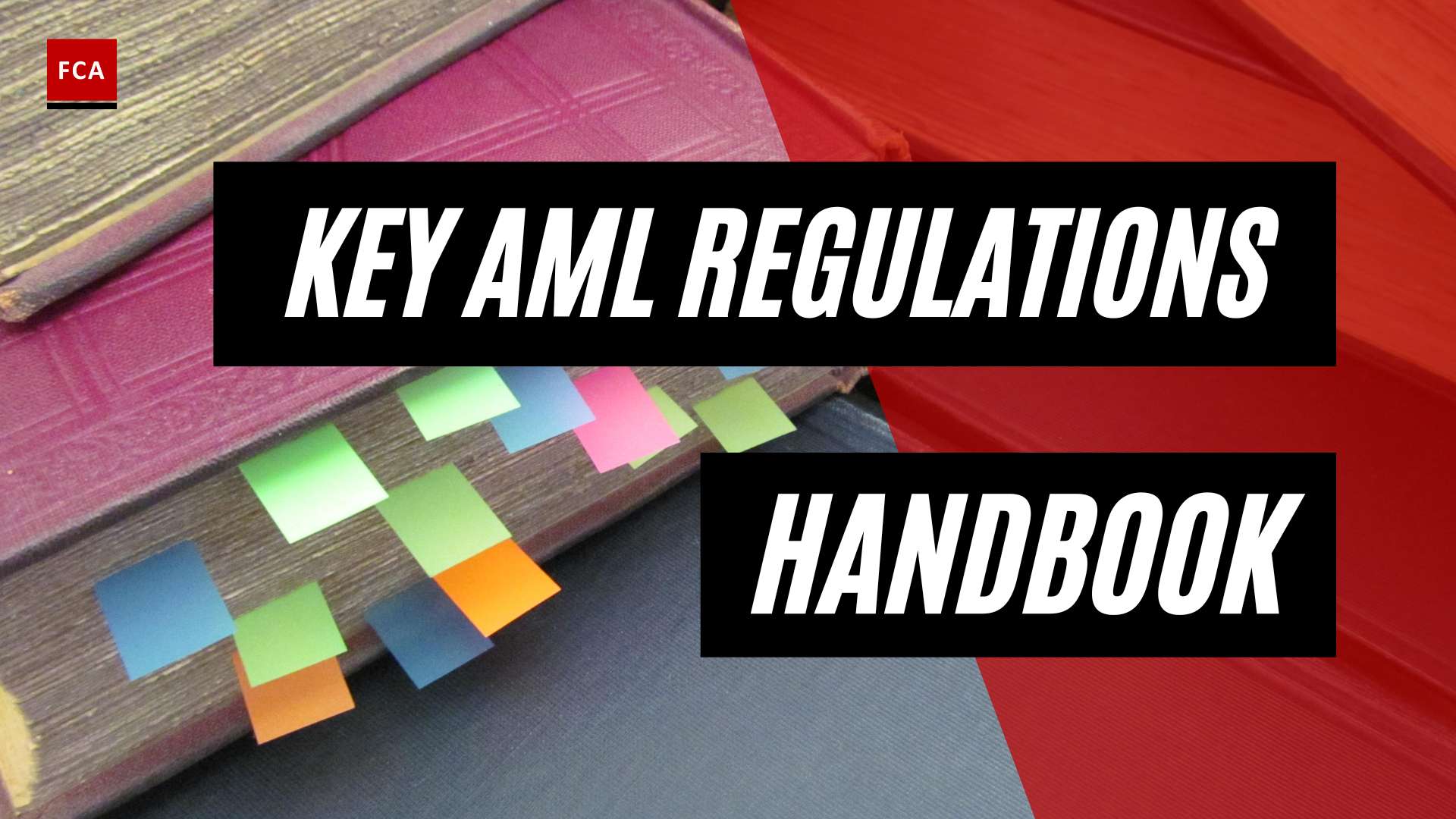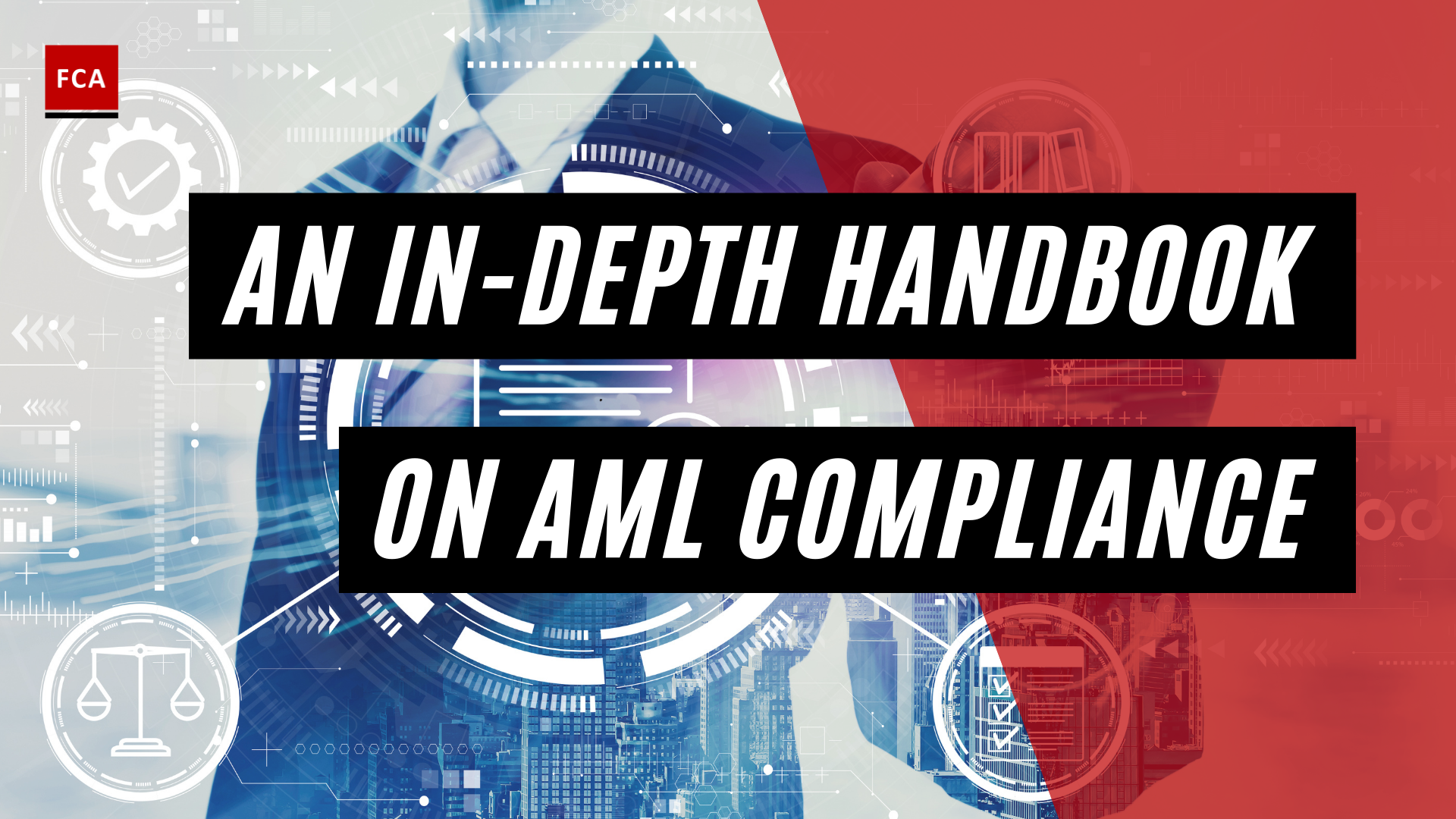Impact of COVID-19 on AML Efforts
The COVID-19 pandemic has had a significant impact on Anti-Money Laundering (AML) efforts across the globe. Various challenges and vulnerabilities have emerged, leading to an increase in financial crimes, cybercrimes, and fraudulent activities. Financial institutions have faced unique challenges in ensuring compliance while adapting to the rapidly changing landscape. However, the pandemic has also prompted the adoption of advanced technologies in AML and spurred regulatory responses and international cooperation.
Increase in Financial Crimes during the Pandemic
The COVID-19 pandemic has created a fertile environment for financial crimes to thrive. Countries, regulators, law enforcement bodies, and financial institutions have reported a significant increase in financial crime cases during this period (EastNets). Criminals have exploited the vulnerabilities presented by the pandemic to perpetrate various illicit activities, such as money laundering, fraud, and corruption. The rise in financial crimes has put additional pressure on AML efforts, necessitating enhanced measures to combat illicit activities.
Vulnerabilities and Threats in AML and CDD
The COVID-19 pandemic has introduced new vulnerabilities and threats into the realm of AML and Customer Due Diligence (CDD) procedures. The digital transformation of transaction processing has compounded these vulnerabilities, leading to a host of brand new risks in the financial sector. The disruption caused by the pandemic has impacted the implementation of AML/CDD measures, including delays in legislative updates, inspections, and international cooperation efforts (FATF). Financial institutions and regulators need to adapt swiftly to address these evolving threats effectively.
Rise in Cybercrimes and Fraudulent Activities
The pandemic has witnessed a surge in cybercrimes and fraudulent activities. Lockdown measures and increased reliance on digital platforms have created new vulnerabilities, paving the way for financial crime threats. Cybercriminals have taken advantage of the situation, launching attacks such as phishing attempts and ransomware incidents. According to Barracuda, there has been a 667% rise in COVID-19-related spear-phishing attacks since the end of February. Financial institutions now face the challenge of protecting their systems and customer data from these evolving threats.
Challenges Faced by Financial Institutions
Financial institutions have encountered numerous challenges in their AML efforts during the pandemic. The sudden shift to remote work arrangements has disrupted established processes and controls. Remote work challenges have made it difficult for institutions to ensure watch list compliance, monitor transactions effectively, and maintain robust AML controls. Additionally, the increased volume of transactions and disruptions caused by the pandemic have strained the resources of financial intelligence units (FIUs), affecting their ability to process and analyze suspicious transaction reports (FATF).
Adoption of Advanced Technologies in AML
To cope with the challenges posed by the pandemic, financial institutions have accelerated the adoption of advanced technologies in their AML efforts. Automation, artificial intelligence (AI), and machine learning have become vital tools for transaction monitoring, remote client onboarding, and due diligence (FATF). These technologies enable institutions to enhance their detection capabilities, identify suspicious activities, and mitigate risks more efficiently. The use of technology in AML has become instrumental in maintaining compliance in the face of evolving financial crime threats.
Regulatory Response and International Cooperation
Regulatory bodies and international organizations have responded to the challenges posed by the pandemic by issuing new regulations and guidelines. These regulatory responses aim to strengthen AML/CFT frameworks, enhance risk-based approaches, and promote international cooperation. Collaboration between countries and financial institutions has become crucial in sharing information, best practices, and intelligence to combat money laundering and terrorist financing effectively. The pandemic has highlighted the importance of global cooperation in mitigating the impact of financial crimes.
The impact of COVID-19 on AML efforts has been substantial, with an increase in financial crimes, vulnerabilities in AML and CDD, rise in cybercrimes, challenges faced by financial institutions, adoption of advanced technologies, and regulatory responses. As the global AML landscape continues to evolve post-COVID-19, it is crucial for stakeholders to strengthen AML/CFT frameworks, embrace risk-based approaches, enhance international cooperation, and adapt to the progress and challenges in AML efforts.
Adjustments in AML Practices
The COVID-19 pandemic has had a significant impact on Anti-Money Laundering (AML) efforts, necessitating adjustments in various aspects of AML practices. Financial institutions have had to adapt their AML programs and policies to address the changing risk landscape brought about by the pandemic. In this section, we will explore some key adjustments made in AML practices.
Customer Due Diligence (CDD) Procedures
Financial institutions are facing challenges in conducting adequate customer due diligence (CDD) procedures due to restrictions on in-person verification caused by the COVID-19 pandemic. However, it is crucial to maintain robust CDD processes to mitigate money laundering risks. Institutions are leveraging technology solutions to enhance their CDD procedures, such as remote identity verification and electronic document verification. These measures help ensure compliance with regulatory requirements while minimizing the need for face-to-face interactions (Verafin).
Transaction Monitoring and Suspicious Activity Detection
Effective transaction monitoring and detection of suspicious activities are vital components of AML efforts. Financial institutions are adjusting their transaction monitoring systems to account for changes in customer behavior and emerging types of fraudulent activities during the pandemic. By leveraging advanced analytics and machine learning techniques, institutions can identify potential money laundering patterns and detect suspicious transactions more efficiently. This helps ensure that any illicit activities are promptly identified and reported to the appropriate authorities.
Remote Work Challenges and Watch List Compliance
The COVID-19 crisis has necessitated remote work arrangements for many financial institutions, presenting unique challenges for AML compliance. Institutions must ensure that their employees have access to the necessary tools and resources to effectively carry out their AML responsibilities while working remotely. One particular area of focus is watch list compliance, which involves avoiding conducting business with sanctioned countries, organizations, individuals, or trading in prohibited goods. Remote compliance officers are urged to establish robust watch list filtering programs using effective technology to maintain high standards in enforcement while minimizing organizational impact (LinkedIn).
Leveraging Technology for Sanctions Screening
To mitigate the risks of sanction violations, financial institutions are leveraging technology solutions to enhance their sanctions screening processes. Advanced technology can provide culturally-aware fuzzy logic name matching analytics, intelligent scoring systems, and comprehensive audit trails. These tools aid institutions in accurately detecting and assessing risks while ensuring compliance with applicable sanctions regulations.
Mitigating Risks and Ensuring Compliance
Financial institutions are implementing various measures to mitigate risks and ensure compliance during the COVID-19 pandemic. This includes enhancing remote client onboarding and due diligence processes, deploying cybersecurity measures to protect sensitive data and systems, and staying updated with new regulations and guidelines introduced during this period. By embracing technology solutions and adapting their AML practices, institutions can continue to meet regulatory requirements and effectively combat money laundering and financial crime risks.
In summary, the COVID-19 pandemic has necessitated adjustments in AML practices to address the evolving risk landscape. Financial institutions are adapting their customer due diligence procedures, transaction monitoring systems, and watch list compliance efforts. They are also leveraging technology to enhance sanctions screening and mitigate risks while ensuring compliance. By making these adjustments, institutions can effectively manage money laundering risks during and beyond the pandemic.
Global AML Landscape Post-COVID-19
As the world continues to grapple with the impact of the COVID-19 pandemic, the Anti-Money Laundering (AML) landscape has undergone significant changes. The challenges posed by the pandemic have prompted a reevaluation of AML efforts and the need for strengthening AML/CFT (Combating the Financing of Terrorism) frameworks. In this section, we will explore key aspects of the global AML landscape in a post-COVID-19 era.
Strengthening AML/CFT Frameworks
The COVID-19 pandemic has highlighted the importance of reinforcing AML/CFT frameworks to address emerging risks and vulnerabilities. Regulators and policymakers recognize the need for a risk-based approach to supervision and enforcement, tailored to the specific threats faced by each jurisdiction (IMF). By adopting a risk-based approach, financial institutions can better allocate their resources and focus their efforts on high-risk areas, ensuring a more effective and efficient response to financial crimes.
Importance of Risk-Based Approach
In the post-COVID-19 era, a risk-based approach is crucial to adapt to the evolving landscape of financial crime. Financial institutions must conduct thorough risk assessments and implement appropriate measures to mitigate the identified risks. By understanding the specific risks faced, institutions can tailor their AML programs accordingly, enhancing their ability to detect and prevent money laundering and terrorist financing activities.
Enhancing International Cooperation
The pandemic has underscored the significance of international cooperation and information sharing among regulatory authorities and financial intelligence units (FIUs). Criminal activities, including money laundering and terrorist financing, have become increasingly sophisticated and transnational in nature. Close collaboration and timely exchange of information are essential to combat these illicit flows effectively. Strengthening international cooperation enables a coordinated response and enhances the global fight against financial crimes.
Progress and Challenges in AML Efforts
While the pandemic has presented numerous challenges for AML efforts, some countries have made notable progress in strengthening their AML/CFT frameworks. These advancements include leveraging innovative technologies, enhancing risk management practices, and improving detection and prevention capabilities (IMF). However, it is crucial to recognize and address the evolving risks and vulnerabilities in the financial sector as criminals adapt to the changing landscape. Continuous efforts are required to stay ahead of emerging threats and ensure the effectiveness of AML measures.
Impact on Transition Testing and Implementation
The COVID-19 pandemic has disrupted the planned transition testing for AML efforts, leading to deferred schedules and impacting the implementation of AML/CFT frameworks. The International Monetary Fund (IMF) highlights that transition testing has been deferred to the end of 2023, directly affecting the effectiveness of AML efforts. The economic challenges brought about by the pandemic have complicated the transition process, raising concerns regarding the effectiveness of AML efforts. As the situation evolves, it is essential to adapt to these delays and continue working towards robust AML implementation.
The global AML landscape post-COVID-19 necessitates the strengthening of AML/CFT frameworks, the adoption of a risk-based approach, enhanced international cooperation, and continuous progress in AML efforts. By embracing these changes, financial institutions can navigate the evolving landscape of financial crime and ensure the integrity of the global financial system.
Technology Solutions in AML Efforts
To address the challenges posed by the COVID-19 pandemic, financial institutions have turned to technology solutions to bolster their anti-money laundering (AML) efforts. These solutions play a crucial role in enhancing transaction monitoring, client onboarding, and compliance with new regulations and guidelines. Let’s explore some of the key technology solutions being adopted in the AML field.
Role of Artificial Intelligence (AI) and Machine Learning
Artificial intelligence (AI) and machine learning have emerged as powerful tools in the fight against financial crimes. By analyzing vast amounts of data and detecting patterns, these technologies can help identify suspicious transactions and activities that may indicate money laundering or other illicit activities. AI and machine learning can also improve the efficiency and accuracy of risk assessment processes, allowing financial institutions to allocate their resources more effectively.
Automation in Transaction Monitoring
Automation plays a vital role in transaction monitoring, particularly in the current remote work environment. Financial institutions are leveraging automation to streamline the monitoring process, ensuring that potential money laundering activities are promptly flagged for investigation. Automated systems can analyze transaction data in real-time, apply predefined rules and algorithms, and generate alerts for suspicious activities. This enables compliance teams to focus their efforts on investigating high-risk transactions and reducing false positives.
Remote Client Onboarding and Due Diligence
The COVID-19 crisis has necessitated a shift towards remote client onboarding and due diligence processes. Financial institutions are adopting digital solutions to facilitate remote identity verification, document collection, and risk assessment. Technology solutions such as secure online portals and video conferencing tools enable financial institutions to remotely verify the identity of clients, conduct thorough due diligence checks, and comply with regulatory requirements without the need for in-person interactions.
Cybersecurity Measures for Financial Institutions
As financial institutions increasingly rely on digital platforms and remote work arrangements, cybersecurity measures have become paramount. Robust cybersecurity systems are crucial to safeguarding sensitive customer data, preventing data breaches, and protecting against cyber threats. Financial institutions are investing in technologies such as advanced encryption, multi-factor authentication, and intrusion detection systems to fortify their cybersecurity defenses. Regular employee training and awareness programs are also essential to ensure that staff members remain vigilant against phishing attempts and other cyber risks.
New Regulations and Guidelines
The COVID-19 pandemic has prompted regulatory bodies to introduce new regulations and guidelines to address the evolving AML landscape. Financial institutions must stay abreast of these changes and adapt their AML practices accordingly. Technology solutions play a crucial role in helping institutions comply with these regulations by automating processes, enhancing data analysis capabilities, and ensuring adherence to the latest regulatory requirements. Regular monitoring of regulatory updates and proactive implementation of necessary adjustments are essential to maintain compliance in this rapidly changing environment.
By embracing technology solutions such as AI and machine learning, automation in transaction monitoring, remote client onboarding and due diligence, cybersecurity measures, and adherence to new regulations and guidelines, financial institutions can strengthen their AML efforts in the face of the COVID-19 pandemic. These technologies not only enhance the effectiveness and efficiency of AML processes but also help mitigate risks and ensure compliance with regulatory requirements in these challenging times.









